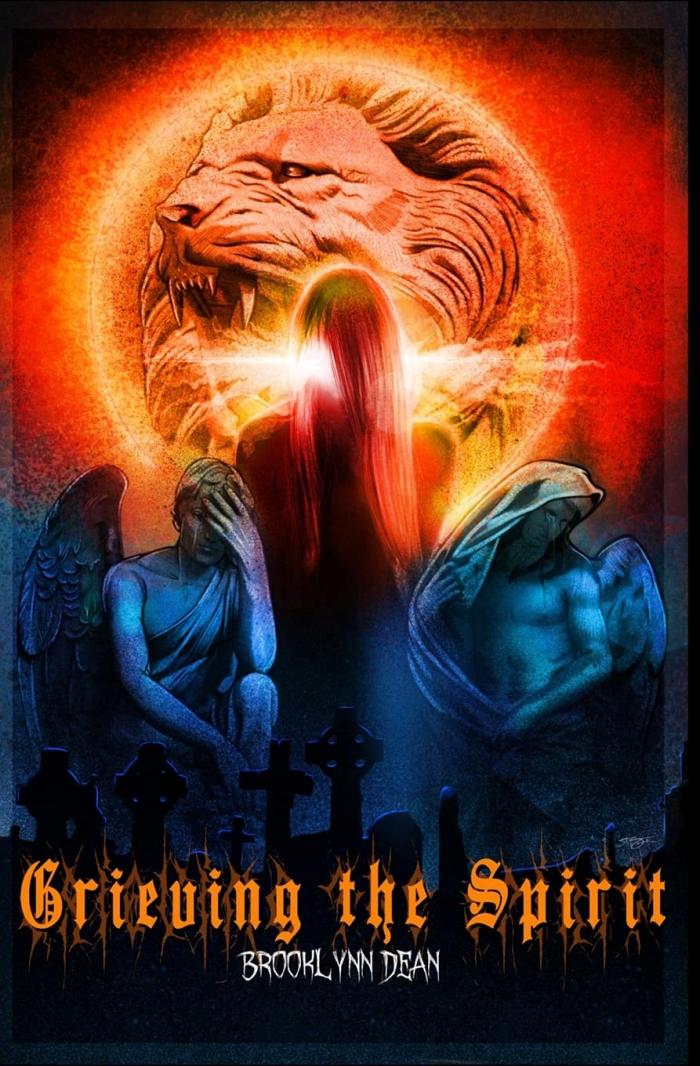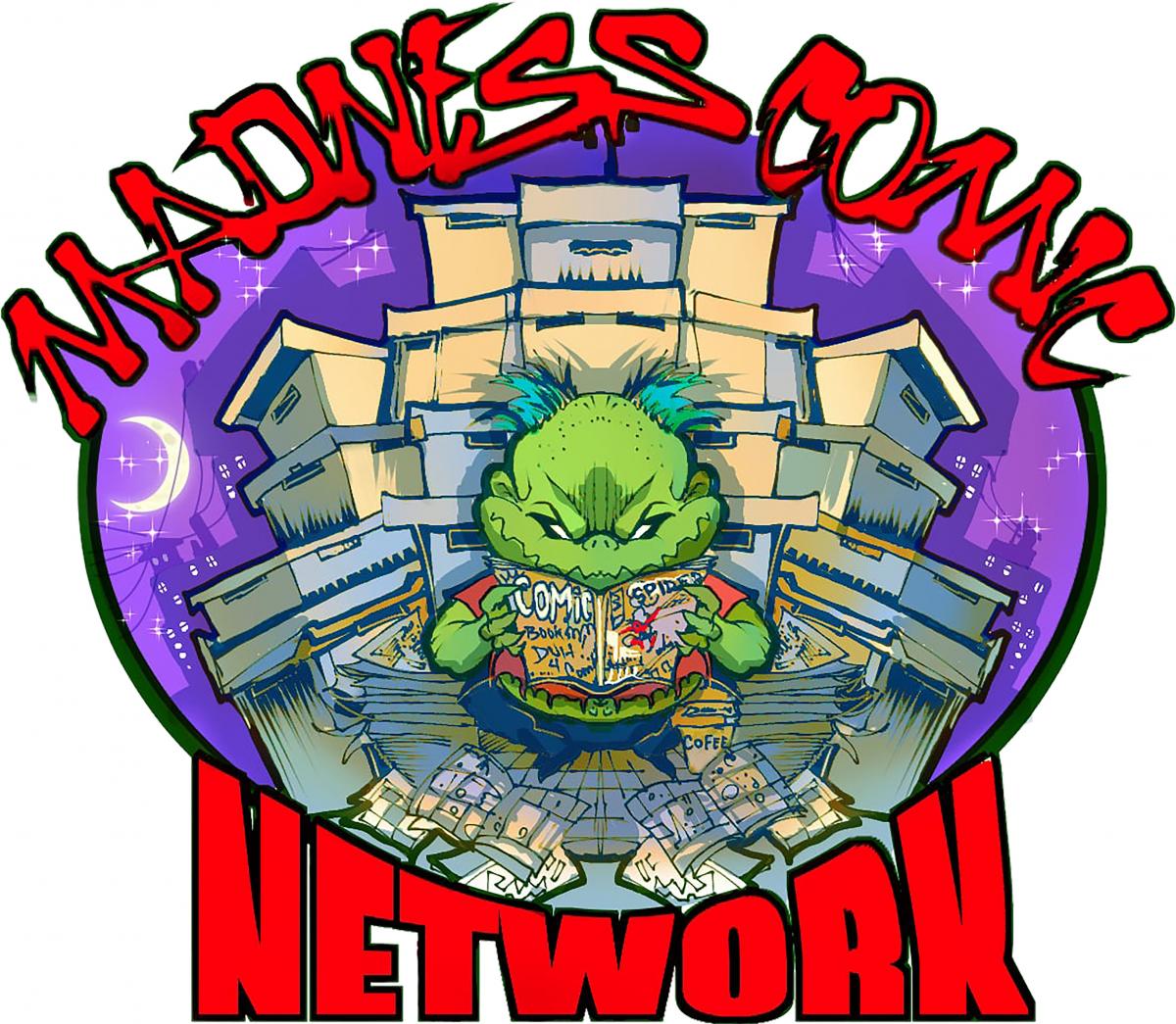War Comes to Earth in Brooklyn Dean's 'Grieving the Spirit'
FTC Statement: Reviewers are frequently provided by the publisher/production company with a copy of the material being reviewed.The opinions published are solely those of the respective reviewers and may not reflect the opinions of CriticalBlast.com or its management.
As an Amazon Associate, we earn from qualifying purchases. (This is a legal requirement, as apparently some sites advertise for Amazon for free. Yes, that's sarcasm.)

'For many deceivers are entered into the world, who confess not that Jesus Christ is come in the flesh. This is a deceiver and an antichrist.' — 2 John 7 (King James Bible)
From Roman Emperor Nero, infamous for his persecution of early Christians, to notorious English occultist Aleister Crowley and '90's shock-rock media-martyr Marilyn Manson, many throughout history have been labeled, for one reason or other, by one group or other, as the Antichrist. Even American president Ronald Wilson Reagan (accused, according to urban legend, of being In League With Satan due to having his first, middle and last names each consist of six letters) was believed by some to be an avatar of The Evil One, just as The Omen films built an unholy franchise upon Damien's slight shoulders.
In actual Christian eschatology, the notion of the Antichrist—the Devil's human incarnation sent to deceive the faithful during the Tribulation—is a relatively modern theological concept, combining several apocalyptic figures prevalent in the Book of Revelations into a single, sinister being, a cosmic boogeyman. But what if, in The End, this boogeyman wasn't a man at all?
Grieving The Spirit, the latest horror effort by author Brooklynn Dean, serves as a direct sequel to her earlier novel Deification and the middle installment in a trilogy following the rise and reign of Torrence, a violent female career criminal who, after the esoteric events in Deification, has ascended to her true mantle as The Antichrist. Dean's vision of the End of Days is a bleak post-Rapture landscape where the skies have opened and angels—fallen and otherwise—stalk the countryside, and any person left alive have become chattel to be used as pawns in the greater cosmic scheme. Torrence and her followers—Satanist priest Conrad, enforcers Jason, Freddy and Michael, and the doubting Wesley—form the core of the infernal offensive on Earth, and to that end have taken possession of a stately manor that quickly becomes a microcosm of Hell itself: chambers are built in imitation of the varying circles of the abyss, and captured angels are tortured for the purpose of breeding a race of Nephilim that would owe allegiance to Torrence in the coming Armageddon. Yet her ultimate plan involves resurrecting the dead and convincing those few remaining mortal souls that she isn't evil at all, but divinity personified and in need of their worship...
Though nominally Torrence is the central figure in the Deification trilogy, Grieving the Spirit as a tale belongs to War, an angel in human guise dispatched by Heaven to exterminate Torrence before she culled true supernatural supremacy but who instead became infatuated with his enemy. Playing a relatively supportive role in Deification, here War becomes a fully realized flesh-and-blood individual, charged by Dean's powerful prose with sometimes conflicting emotions at his place in Torrence's newly-created hellish hierarchy. Is his mission to spy for God, to free his captured seraphim brethren, or is his purpose to dethrone Torrence through his own complex, unexplainable love for her?
It's this unconventional romance that lies at the heart of the story, and with its macabre moodiness and character-building, Grieving the Spirit evolves as a very different work than its predecessor. It's a smaller tale, more personal, more intimate, less about Torrence and her crew and the machinations of the apocalypse, and far less bombastic in its execution. Where Deification was concerned with forthright action, violence and the mystery revolving around Torrence's fiendish quest to realize her devilish potential, this is a nuanced, subtle narrative, which isn't to say the text lacks a potent taste of terror. If anything, Grieving the Spirit's chilling brutality is more pronounced than in Deification: the horror is less kinetic, but infinitely more disturbing. One skin-crawling segment involves the slaying of a married couple who become the bloody props in a (nec)romantic coitus scene that will leave readers with finer sensibilities squirming in their seats. Later passages describing Torrence's Hell abound with Classical imagery reminiscent of Dante's Inferno, Milton's Paradise Lost and even de Sade's 120 Days of Sodom, rendered in such fine, black detail it exerts a palpable mark upon the audience, suffocating, claustrophobic, as disquieting as the manor and the blasphemies performed within its walls.
If there's fault in Grieving the Spirit, it's the weakness of being the trilogy's middle installment. There's the conspicuous feeling this is only the cream in a malevolent cookie; not filler per se, but necessary ground to cover before the audience reaches the climactic confrontation surely to come in the concluding installment. The main theme of Book One rotated around self-empowerment and seeking the answer to one's own fascination with horror. Grieving The Spirit treads more fundamental inquiries: What is it that makes us human? What is the price of blind faith and obedience? And what does unlimited power do to its wielder? Parallels exist in the ascension of Torrence and the emergence of a dictator: she begins similarly to a low-level revolutionary intent on overthrowing the status quo, and with that task achieved is now the One In Charge. Yet if history has proven anything, it's that such a leader will often start a war as proof to those under their control that they backed the right horse. Will that happen with Torrence in the third volume of the series? Will she spearhead a full-fledged attack against the gates of Heaven, and how will the tragic, ironic revelation in the final pages of this book play out if such a sequence comes? Will War and the love he engenders for Torrence be her undoing? It all remains to be seen, though any half-way serious fan of horror fiction should be eager for the answers. I know I will be.
I give Grieving the Spirit a 5 (out of 5) on my Fang Scale. An excellent, thought-provoking work. Well done.


